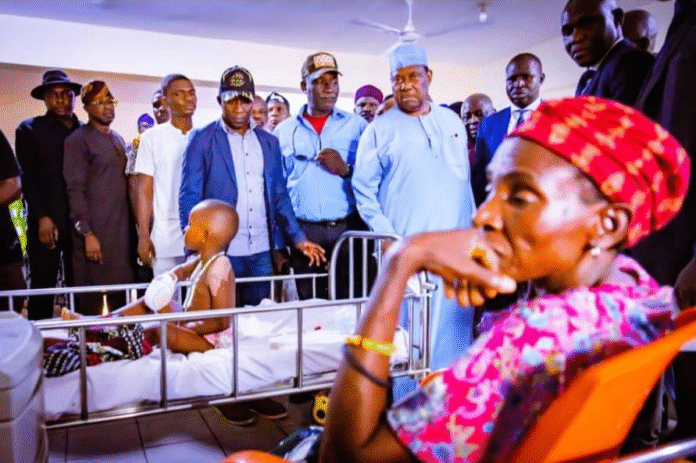By Maxwell Adeyemi
For far too long, Benue State has witnessed gruesome killings that no successive administration—past or present—has managed to halt. This isn’t merely a recurring incident; it is a symptom of a systemic failure. The bloodshed is not the product of an isolated ethnic clash but of deep-rooted socio-economic woes, political neglect, and an intelligence apparatus that appears to prioritize the interests of an elite few over the safety of the many.
The key questions that must be asked are: Who is perpetrating these killings, why are they doing it, and who stands to benefit? There is an eerie silence from the nation’s security agencies on these issues. Despite credible intelligence that should be shining a light on these tragedies, no substantive report has emerged. Instead, intelligence efforts and law enforcement seem preoccupied with safeguarding the interests of the powerful.
My own experience— joining a peaceful #EndBadGovernance protest led to arrest and intimidation at my residence by the Intelligent Response Team—days after the peaceful protest, if the intelligence response team can locate and arrest me at my own home for peacefully protesting which is my democratic right, how is it that they can’t likewise pinpoint the perpetrators behind the killings in Benue? Their demonstrated ability to track dissent should extend to tracking down those responsible for the rampant violence. When state security fails to respond to the outrage of grieving communities, it conceals a troubling truth: accountability and transparency are in short supply.
It is not the case that one ethnic group is inherently more violent or predatory than another. Historically, the relationship between farmers and herders in Benue was a symbiotic one—both groups traditionally sharing the land’s bounty. What we see now is a crisis driven by deep-seated poverty, chronic inequality, and a system that allows corrupt elites to profit from escalating tensions. The absence of timely police intervention during assaults on Benue communities, coupled with inconsistencies in releasing credible intelligence, highlights that the problem in Benue is not one of inherent ethnic animosity but of a state machinery failing to protect its citizens.
Nigerians have never asked for extraordinary measures; we merely demand that our government uphold its most basic responsibility—to protect life and property. Recently, Benue residents took to the streets to protest the heinous killings of their loved ones. Yet, the very same police—who at that time had failed to apprehend the perpetrators responsible for these brutal acts—showed up and fired tear gas on the demonstrators.
When the state privileges the continuance of insecurity over accountability, it breeds an environment where even peaceful protests are met with violence, and those responsible for atrocities in the rural heartlands can act with impunity. The cascading effect is a dire erosion of trust in both the security forces and the government. The state’s failure to intervene effectively in Benue is a stark indicator that our system, as it stands, is skewed against the poor and marginalized while benefitting a corrupt few.
This is where the notion of a humane standard of living becomes crucial. It is not about halting traditional practices like farming or herding; rather, it is an economic intervention designed to alleviate the extreme daily pressures on citizens. A humane standard of living transcends being a mere pay-check or minimum wage – it acts as an economic circulatory system that injects vitality into remote communities, bolsters purchasing power, and ultimately diminishes the desperation that fuels social unrest. When rural work and jobs are well compensated, the economic pressure on rural people is reduced, and local communities are better equipped to resist violent opportunists whose actions feed off the prevailing system’s failures.
At its core, the cycle of violence in Benue is not a dilemma of “us versus them” on an ethnic basis—it is a damning indictment of a state that has—and continues to—fail in its duty to secure its people. A comprehensive response must therefore go beyond military solutions and superficial reforms. It must include grassroots strategies, transparent intelligence operations, and, most importantly, an economic empowerment framework that guarantees a dignified standard of living for all.
In sum, halting the cycle of carnage in Benue State requires a united working-class response paired with systemic overhaul. The government must redirect its focus from protecting the privileges of the elite to uplifting the welfare of every citizen. Only then can we hope to replace a cycle of relentless violence and suppression with one of meaningful accountability, economic resilience, and peace.






